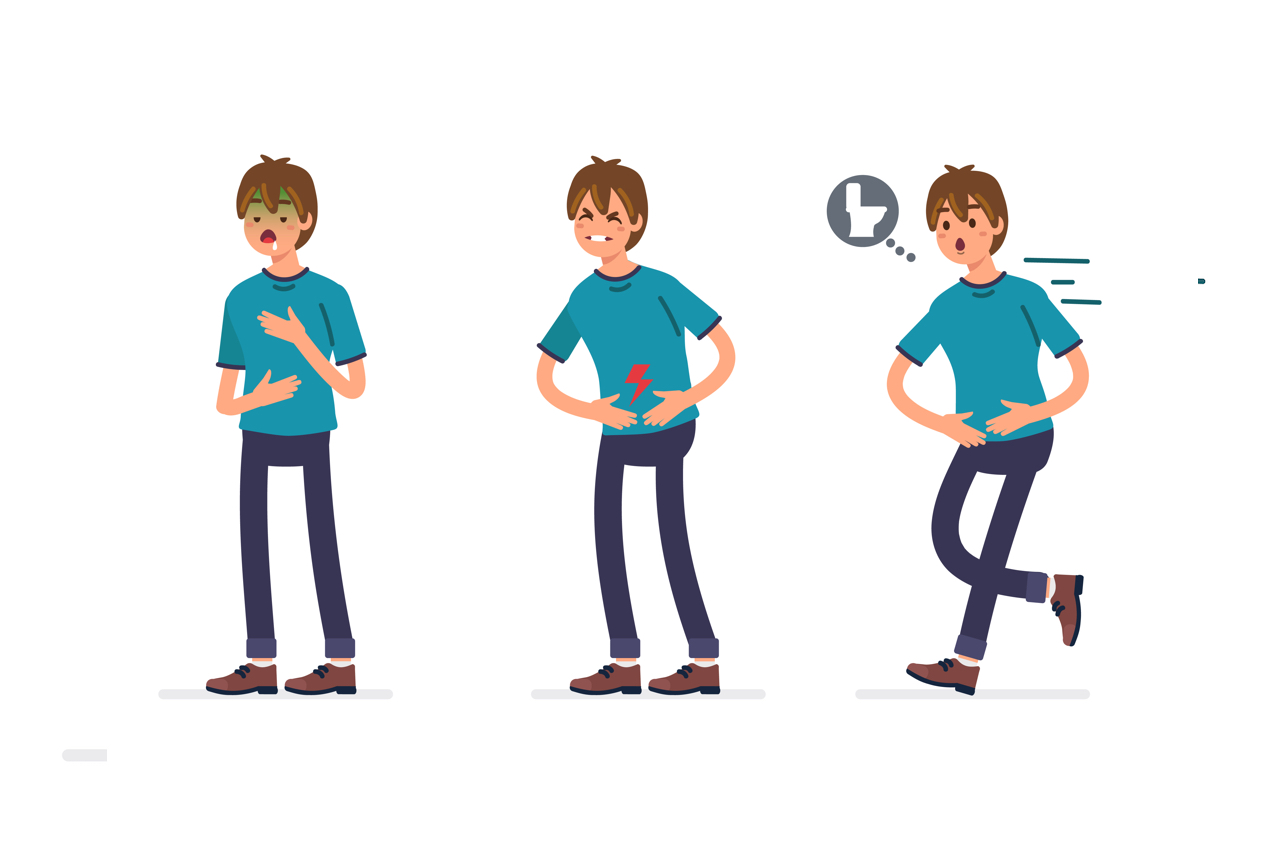You feel a sharp pain in your stomach and nausea washes over you. Did the burger you just ate give you food poisoning, or do you have a stomach bug?
Two of the most common causes of stomach discomfort is food poisoning and gastro. Let’s take a look at the differences between them.
What is ‘gastro’?
Commonly known as the stomach flu, gastroenteritis (also called ‘gastro’), is caused by a viral infection that attacks your digestive system. Different types of stomach flu are caused by different things. Stomach viruses are very contagious.
You can get gastro by:
- Eating food or drinking liquids contaminated with a virus.
- Having direct or indirect mouth contact with a person who has a virus.
- Coming into contact with vomit or the stool of infected people.
Symptoms can last up to three days and includes diarrhoea, nausea or vomiting, stomach cramps, muscle aches, weakness, a fever, headache and dizziness.
What is food poisoning?
Food poisoning happens when you’ve eaten contaminated, toxic or spoiled food. It usually happens when the food has been infected with infectious bacteria, parasites or viruses. This can happen anytime and anywhere when food is cooked or handled incorrectly.
Common symptoms may include stomach cramps, diarrhoea, vomiting, nausea, a fever, thirst, fatigue and weakness. These symptoms can last up to 10 days depending on the cause. The symptoms of food poisoning are usually more severe than gastro.
How to prevent food poisoning
- Always follow the cooking instructions on packaged food correctly.
- Make sure beef, chicken, seafood and pork is fully cooked before eating.
- Keep utensils, surfaces and your hands clean at all times.
- Refrigerate your food within two hours after cooking and if the food looks off, throw it out.
To ease symptoms of food poisoning and the stomach flu:
- Suck on ice blocks, or sip on water. This will help keep you hydrated.
- Avoid juices and other drinks which may make your diarrhoea worse.
- Avoid eating solid foods for a few hours to help your stomach settle.
- If you feel you’re ready to eat, try bland foods first like toast, crackers and rice. Stop eating if you feel nauseous.
- Avoid dairy, caffeine, sugar and fatty foods until you feel better, as these can make you feel worse.
The bottom line
- Treatment for both food poisoning and gastro usually includes drinking lots of water to avoid dehydration. Your doctor may replace lost fluids in your body if you’re severely dehydrated.
- Antibiotics are not used to treat viral and bacterial causes of food poisoning, but may be used under certain circumstances.
- Your doctor may prescribe medication to stop vomiting and diarrhoea for both gastro and food poisoning.
- Talk to your doctor if your symptoms last longer than 10 days (food poisoning) and three if you have gastro.
- If you experience severe symptoms like blood in your stool, a fever, vomiting or diarrhoea that lasts more than 72 hours, see your doctor immediately.
References:
- https://www.healthline.com/health/digestive-health/stomach-bug-or-food-poisoning#takeaway
- https://www.mayoclinic.org/diseases-conditions/food-poisoning/symptoms-causes/syc-20356230
- https://www.medicalnewstoday.com/articles/311508.php
- https://www.emedicinehealth.com/food_poisoning_vs_stomach_bug/article_em.htm#when_should_i_see_a_doctor_if_i_think_i_have_food_poisoning_or_the_stomach_flu
- https://www.mayoclinic.org/diseases-conditions/food-poisoning/diagnosis-treatment/drc-20356236

